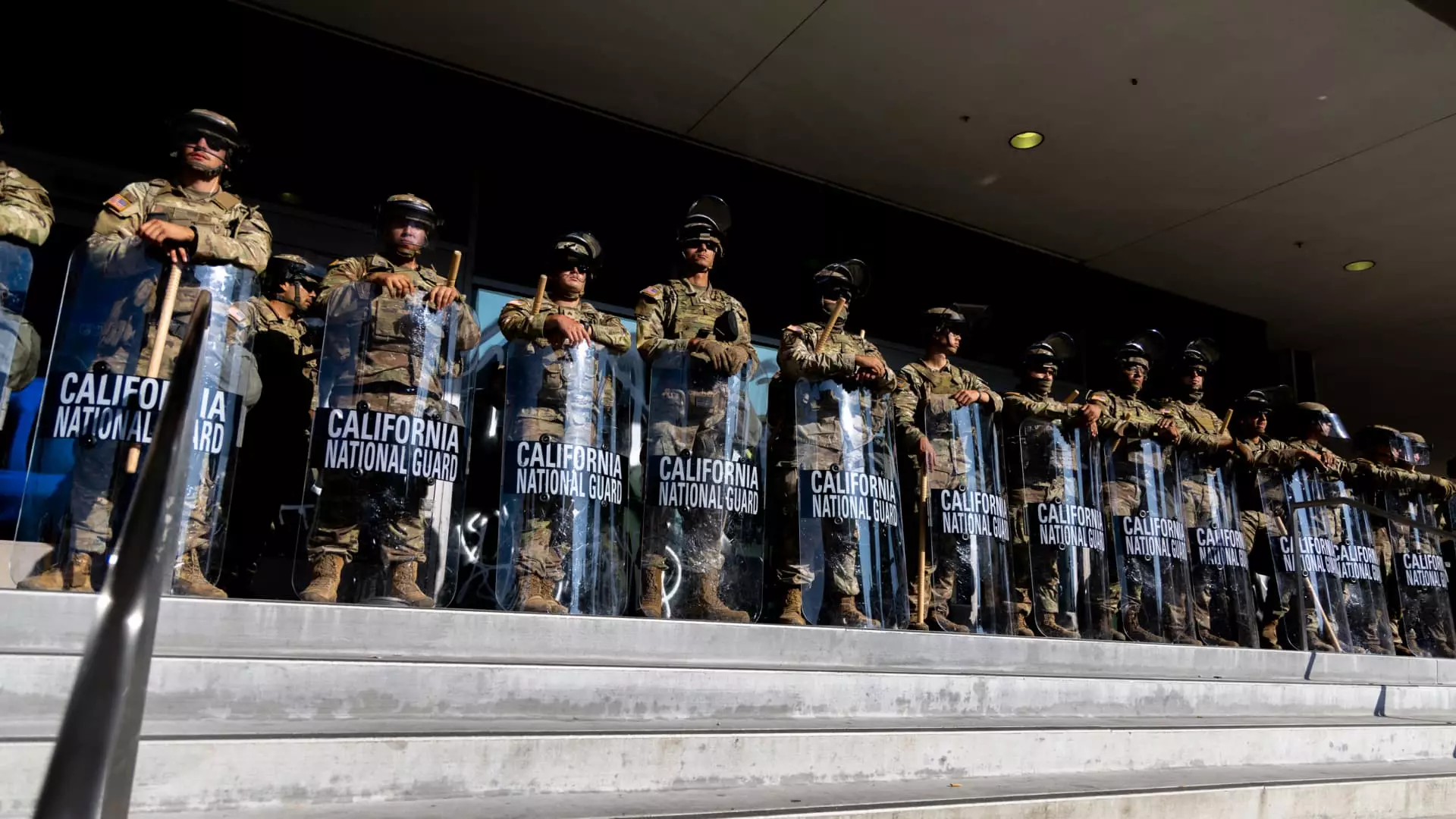The recent ruling by the 9th U.S. Circuit Court of Appeals, which legitimizes President Donald Trump’s unprecedented control over the California National Guard, raises significant concerns about the erosion of local state authority and the bounds of presidential power. By allowing the federal government to effectively override Governor Gavin Newsom’s authority, the appeal not only sets a dangerous precedent but also instills a sense of unease about the balance of power in our democracy. We are witnessing, in real time, a redefinition of the relationship between state and federal governments, and this should alarm anyone who values local governance.
A Misguided Interpretation of ‘Order’ and ‘Security’
The court’s reasoning—that Trump’s deployment of National Guard troops was justified due to assertions of violence during protests over immigration raids—overlooks a fundamental principle: the distinction between protest and rebellion. U.S. District Judge Charles Breyer may have been criticized for his ruling that the protests did not constitute a rebellion; however, his logic was grounded in a historical understanding of civil unrest that has defined our nation. The protests, in their essence, are an exercise of constitutional rights. A purposeful conflation of protests—or dissent—with violent rebellion undermines the very fabric of our democracy.
Trump’s administration perpetuates a narrative that presents dissent as an existential threat, a dangerous mindset that has found its roots in authoritarian regimes. By framing the deployment of troops as necessary to “restore order,” the administration implies that public expression of grievances is an offense deserving military intervention. This rationale is not only troubling but representative of a broader trend wherein dissent is systematically legitimized as a threat to national security, thus paving the way for an overreaching government response.
Power and Its Perils
The appeals court also suggested that the federal government acted within its legal rights when it deployed troops while still operating under a veil of ambiguity concerning the governor’s authority. The suggestion that even without proper consultation with state authorities, the federal government retains inherent control violates the foundational concept of federalism upon which this nation was built. The president’s authority should not encroach upon the prerogative of individual governors, as doing so may suggest that local leaders have become mere puppets in a unilateral federal game.
The chilling aspect of this ruling also stems from its partisan implications. As Trump rallies his base on the back of militarized responses to protests, we must question not only the motivations behind this deployment but also what the long-term effects will be on governance in America. The precedent set here allows a sitting president to commandeer military engagement to silence opposition, creating a path where future administrations might similarly exploit this as a means to quash dissent, irrespective of political party affiliations.
The Role of Judicial Appointments
It is also worth noting the inherent biases present within the appellate panel, two of whom were appointed by Trump himself. The implications of judicial appointments on the upholding or undermining of democratic principles cannot be understated. This struggle highlights the troubling reality that appointments can influence crucial legal determinations that govern citizens’ lives. As we observe judicial rulings that increasingly favor executive power, we must remain vigilant in safeguarding the separation of powers that form the backbone of our democratic institution.
The Broader Implications of This Case
This case poses questions that transcend its immediate context. It signals a concerning trend in American governance—one where dissent is met with militarized force rather than dialogue and compromise. In a nation that prides itself on freedoms and rights, we are reaching a low point where those in power can arbitrarily decide to deploy military force against citizens expressing their beliefs. The ramifications of this ruling extend beyond the borders of California; it reverberates throughout our nation, calling upon us to reassess the trajectory of our democracy.
As we navigate the complexities of governance in this polarized era, we must remain adamant in protecting the foundation of democratic ideals. The rule of law must persistently safeguard our rights to peacefully assemble and voice dissent. If unchecked authority continues to thrive, we might find ourselves in a chilling new reality—far removed from the values that define America.


Leave a Reply